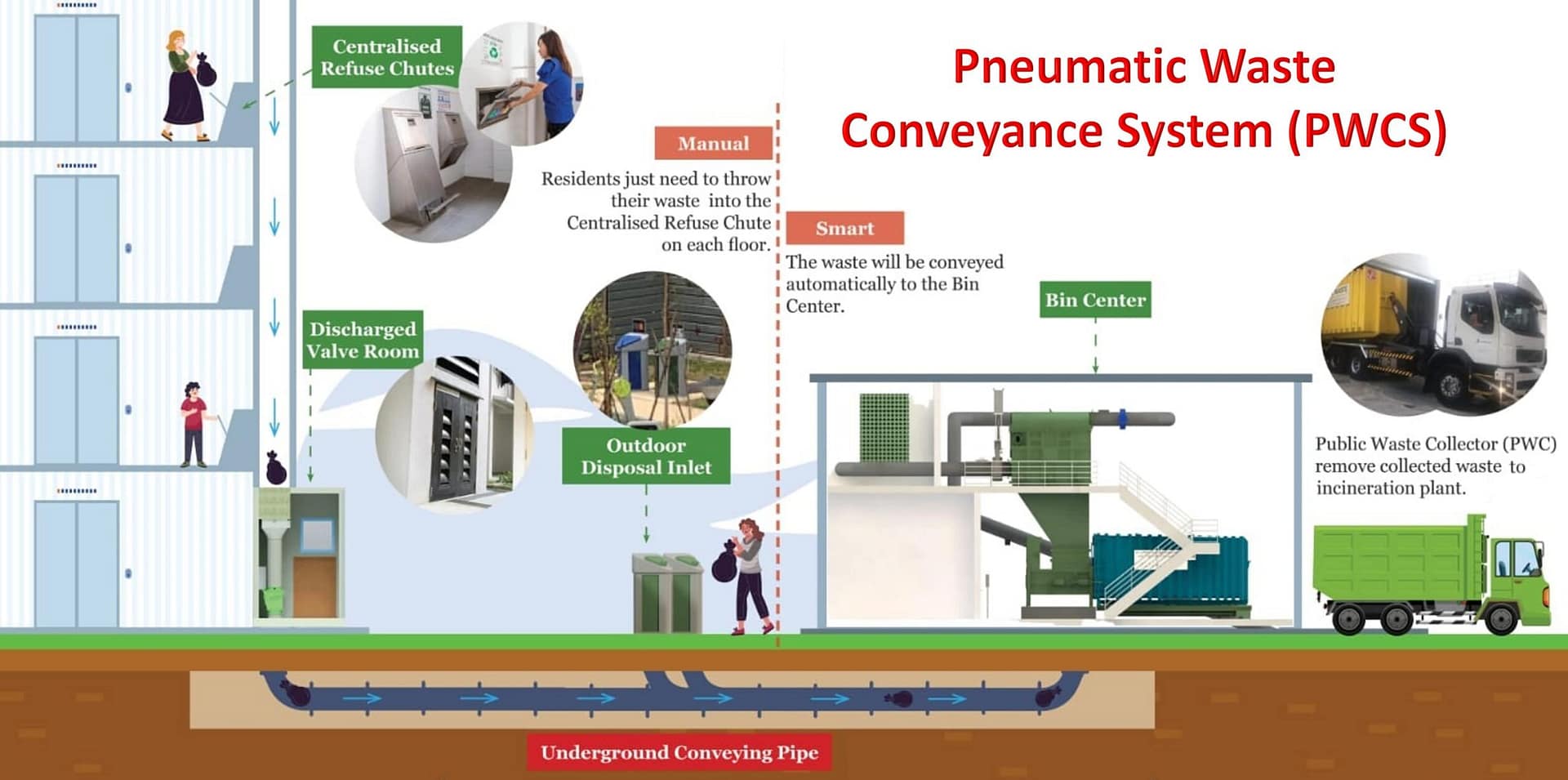In Singapore, a city-state renowned for its cleanliness and efficiency, the effective management of sanitary waste is paramount to maintaining public health and environmental sustainability. From high-rise residential complexes to bustling commercial hubs, innovative solutions are continuously being developed to address the challenges of waste disposal in urban environments. In this blog, we delve into the advancements in sanitary waste management, exploring cutting-edge technologies, sustainable practices, and their impact on hygiene and sanitation in the Lion City.
Innovative Technologies in Singapore’s Sanitary Waste Management:
Singapore is at the forefront of implementing innovative technologies to revolutionize sanitary waste management:
1. Pneumatic Waste Conveyance System (PWCS): also known as Automated Vacuum Waste Collection Systems In Singapore’s public housing estates, utilize underground vacuum pipes to transport waste from individual housing units to centralized collection points. This efficient system minimizes odor, pests, and manual handling of waste, ensuring a hygienic and clean environment for residents.
2. Smart Bin Sensors: Across Singapore’s streets and public spaces, smart bin sensors are deployed to monitor fill levels in waste bins in real-time. When bins reach capacity, waste management teams receive alerts, enabling prompt collection and preventing overflow, littering, and potential health hazards.
3. Waste-to-Energy Plants: Singapore’s waste-to-energy plants convert non-recyclable waste into electricity, contributing to the country’s energy security and sustainability goals. By harnessing energy from waste, Singapore reduces its reliance on traditional fossil fuels and minimizes the environmental impact of waste disposal.
Sustainable Practices in Singapore’s Sanitary Waste Management:
In addition to technological innovations, Singapore promotes sustainable practices in sanitary waste management:
1. Source Separation and Recycling: Through comprehensive recycling programs, Singapore encourages residents and businesses to segregate recyclable materials from general waste. Public education campaigns and convenient recycling facilities facilitate the proper disposal of paper, plastics, glass, and metal, minimizing waste sent to landfills.
2. Food Waste Recycling: Singapore’s efforts to reduce food waste include initiatives such as on-site food waste digesters in commercial premises and community-driven composting programs. These initiatives divert organic waste from landfills, produce nutrient-rich compost, and contribute to Singapore’s goal of becoming a zero-waste nation.
3. Public Education and Engagement: The National Environment Agency (NEA) of Singapore conducts outreach programs and educational campaigns to raise awareness about responsible waste management practices. By engaging residents, businesses, and schools, NEA promotes a culture of environmental stewardship and sustainability.
Impact on Hygiene and Sanitation in Singapore:
The advancements in sanitary waste management in Singapore have significant implications for hygiene and sanitation:
1. Disease Prevention: By minimizing the accumulation of waste and reducing exposure to pathogens, Singapore’s sanitary waste management systems help prevent the spread of infectious diseases and protect public health.
2. Environmental Conservation: Sustainable waste management practices contribute to Singapore’s efforts to conserve natural resources, reduce greenhouse gas emissions, and mitigate climate change impacts, ensuring a cleaner and greener future for generations to come.
3. Community Well-Being: Clean and hygienic environments enhance the quality of life for Singaporeans, fostering a sense of pride, belonging, and well-being in the community.
Conclusion:
In Singapore, the pursuit of excellence in sanitary waste management is driven by a commitment to innovation, sustainability, and public health. Through the adoption of cutting-edge technologies, promotion of sustainable practices, and engagement of the community, Singapore continues to set a global benchmark for cleanliness and environmental stewardship. By working together towards a common goal, Singaporeans can build a brighter and more sustainable future for their city and its residents.





Leave a Reply